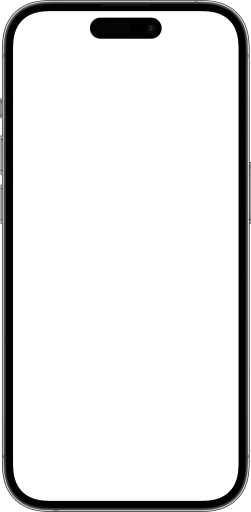Aug 16, 2024
Taking Control: An Organized Approach to Managing Your Mobile App Development
In the fast-paced world of mobile app development, staying organized isn't just a nice-to-have—it's essential for success. Whether you're a solo developer or leading a team, managing the complex process of bringing an app to life requires a structured approach. Let's dive into how you can take control of your mobile app development journey, from concept to launch and beyond.
Start with a Solid Foundation
Every great app begins with a clear vision. Before you write a single line of code, take the time to thoroughly plan your app. Begin by defining your app's core purpose and target audience. What problem does it solve? Who will use it? Answering these questions will guide every decision you make moving forward.
Next, create a detailed project roadmap. Break down your app development into manageable phases, each with its own set of goals and deadlines. This bird's-eye view will help you track progress and ensure you're always moving in the right direction. Remember, a well-planned project is half-done!
Embrace Project Management Tools
In today's digital age, there's no shortage of project management tools designed to keep your development process on track. Platforms like Trello, Asana, or Jira can be invaluable for organizing tasks, tracking bugs, and managing your overall workflow. Choose a tool that fits your working style and stick with it consistently.
Use these tools to create a backlog of features and tasks, prioritize them, and assign them to specific team members or development sprints. This level of organization ensures that nothing falls through the cracks and everyone knows what they should be working on at any given time.
Document Everything
Documentation might not be the most exciting part of app development, but it's crucial for maintaining organization and continuity. Create and maintain comprehensive documentation for your app's architecture, API endpoints, and any third-party integrations. This becomes especially important as your project grows or if you need to onboard new team members.
Don't forget to document your code as well. Clear, concise comments can save hours of confusion down the line, whether you're revisiting old code or handing it off to another developer. Think of good documentation as a gift to your future self.
Implement Version Control
Version control is non-negotiable in modern app development. Tools like Git not only help you track changes and collaborate with others but also serve as a safety net, allowing you to revert to previous versions if something goes awry. Establish clear branching strategies and commit messages conventions to keep your repository clean and understandable.
Regular commits and pushes ensure that your work is always backed up and accessible. It's like having a time machine for your code—invaluable when you need to track down when and why a particular change was made.
Adopt an Agile Mindset
Agile methodologies have revolutionized software development, and for good reason. By breaking your development process into short, iterative cycles (often called sprints), you can maintain flexibility and respond quickly to changes or new insights.
Hold regular stand-up meetings to keep everyone aligned on progress and any roadblocks. At the end of each sprint, take time to review what was accomplished and plan for the next cycle. This iterative approach allows you to continuously refine your app based on feedback and changing requirements.
Prioritize Testing and Quality Assurance
Nothing derails an app development project faster than a backlog of bugs and issues. Integrate testing into every stage of your development process, not just at the end. Implement unit tests for individual components, integration tests for how these components work together, and user acceptance testing to ensure the app meets real-world needs.
Consider using automated testing tools to catch issues early and often. The more you can automate, the more consistent and reliable your testing process becomes. Remember, catching a bug during development is always easier (and cheaper) than fixing it after release.
Stay on Top of Your Resources
Managing your development resources effectively is crucial for staying organized and on budget. Keep a close eye on your development hours, server costs, and any third-party services or APIs you're using. Regularly review these to ensure you're using resources efficiently and not overspending in any area.
If you're working with a team, clear communication about resource allocation is key. Everyone should understand the constraints you're working within and how their work impacts the overall project budget and timeline.
Plan for the Long Haul
App development doesn't end at launch. Plan for ongoing maintenance, updates, and user support from the beginning. Set up systems for collecting and analyzing user feedback, monitoring app performance, and tracking key metrics. This forward-thinking approach will help you continuously improve your app and maintain its relevance in a competitive market.
Taking an organized approach to mobile app development might seem daunting at first, but it pays dividends in the long run. By establishing clear processes, leveraging the right tools, and maintaining a structured yet flexible mindset, you set yourself up for success. Remember, the goal isn't just to build an app—it's to create a sustainable, evolving product that continues to meet user needs over time.
As you embark on your app development journey, keep these organizational principles in mind. They'll help you navigate the complexities of the process, maintain clarity amidst the chaos, and ultimately deliver an app that you can be proud of. Happy developing!
Aug 30, 2024
Cleaning Up the Industry: The Power of Starting Your Own Two-Sided Marketplace
Aug 29, 2024
Harnessing AI: Building Mobile App Features with Claude AI and ChatGPT
Aug 28, 2024
Serverless vs. Standard: The Mobile App Development Showdown
See all posts






